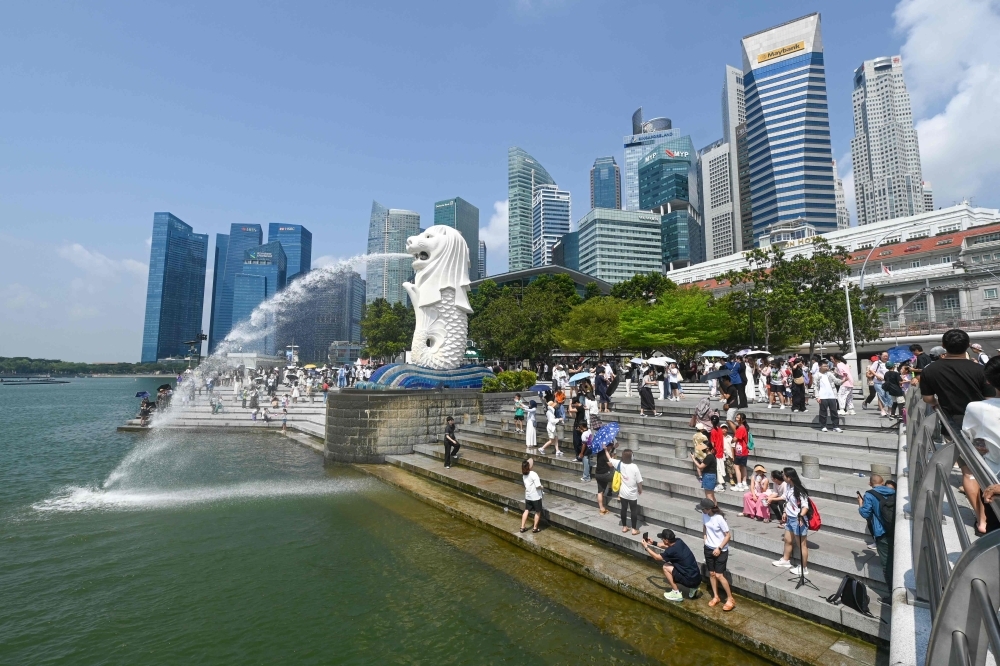
Singapore’s chipmakers on edge over US 100pc semiconductor tariffs

Singapore’s skyline, home to one of the world’s key semiconductor hubs, faces uncertainty over new US chip tariffs. — AFP pic
Friday, 08 Aug 2025 1:26 PM MYT
SINGAPORE, Aug 8 — Economists have warned that the United States’ move to impose a 100 per cent tariff on semiconductor imports could hit chipmakers in Singapore, with ripple effects on sectors like precision engineering and logistics.
US President Donald Trump announced this week that the tariff will apply to all chips and semiconductors coming into the country, except for companies that have committed to manufacture in the US or are in the process of doing so.
“The general sentiment is one of cautious watchfulness, with concerns focused on supply chain disruption, rising costs, and unpredictability in global trade flows if the tariff is broadly applied,” Singapore Semiconductor Industry Association executive director Ang Wee Seng told CNA.
The Singapore government is also treading with caution, the news portal reported.
“Taken together, these developments have caused significant uncertainty and downside risks to the global economy. And we must be prepared for more shocks and surprises and challenges going ahead,” Singapore’s Trade and Industry Minister Gan Kim Yong in April was quoted as saying.
Ang noted that Singapore’s semiconductor industry is “deeply integrated into global value chains” and that “the US remains a key end market.”
“If the proposed tariffs are implemented broadly, they may affect both direct exports and Singapore-based firms that are part of the global supply chain serving the US market,” he was quoted as saying.
Broadly speaking, OCBC chief economist Selena Ling said Trump’s announcement looks like bad news for key semiconductor manufacturing hubs, including Singapore.
“The impact of 100 per cent semiconductor tariffs is not negligible.
“The airfreight loads could be potentially affected too, since chips are usually sent by air,” she added.
Economic adviser Song Seng Wun told Singapore-based CNA that the effect depends on how American facilities are defined, such as whether or not chips assembled in Singapore for US firms would be subject to the “100 per cent” tariffs.
“When does it kick in, does ground have to be broken (in the US), how long do you have to build until we know what are the exemptions from these tariffs? We don’t have an answer to that.
“Donald Trump might think it’s quite straightforward, but the supply chain can be quite complex,” US politics expert Steven Okun told CNA.
No comments:
Post a Comment